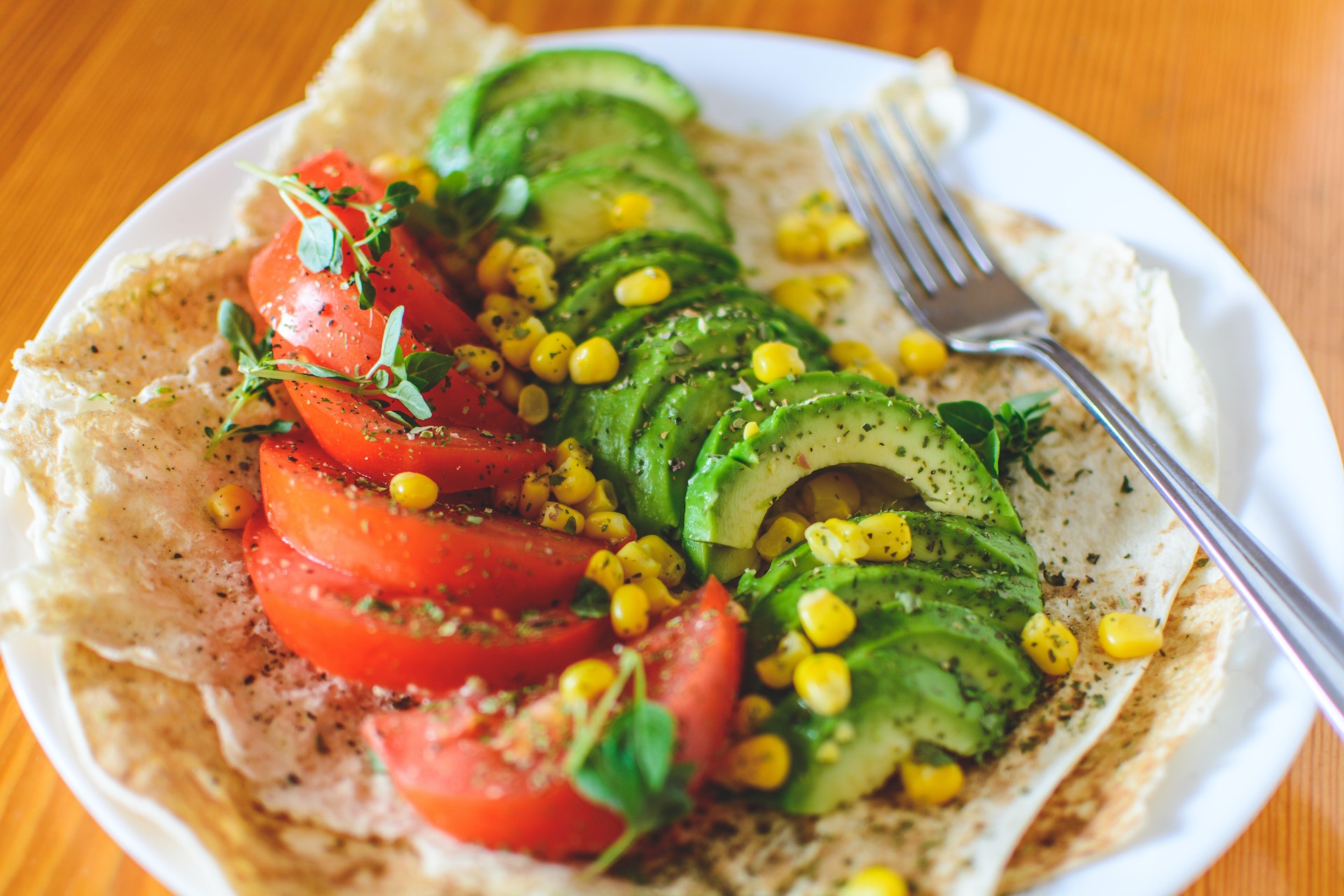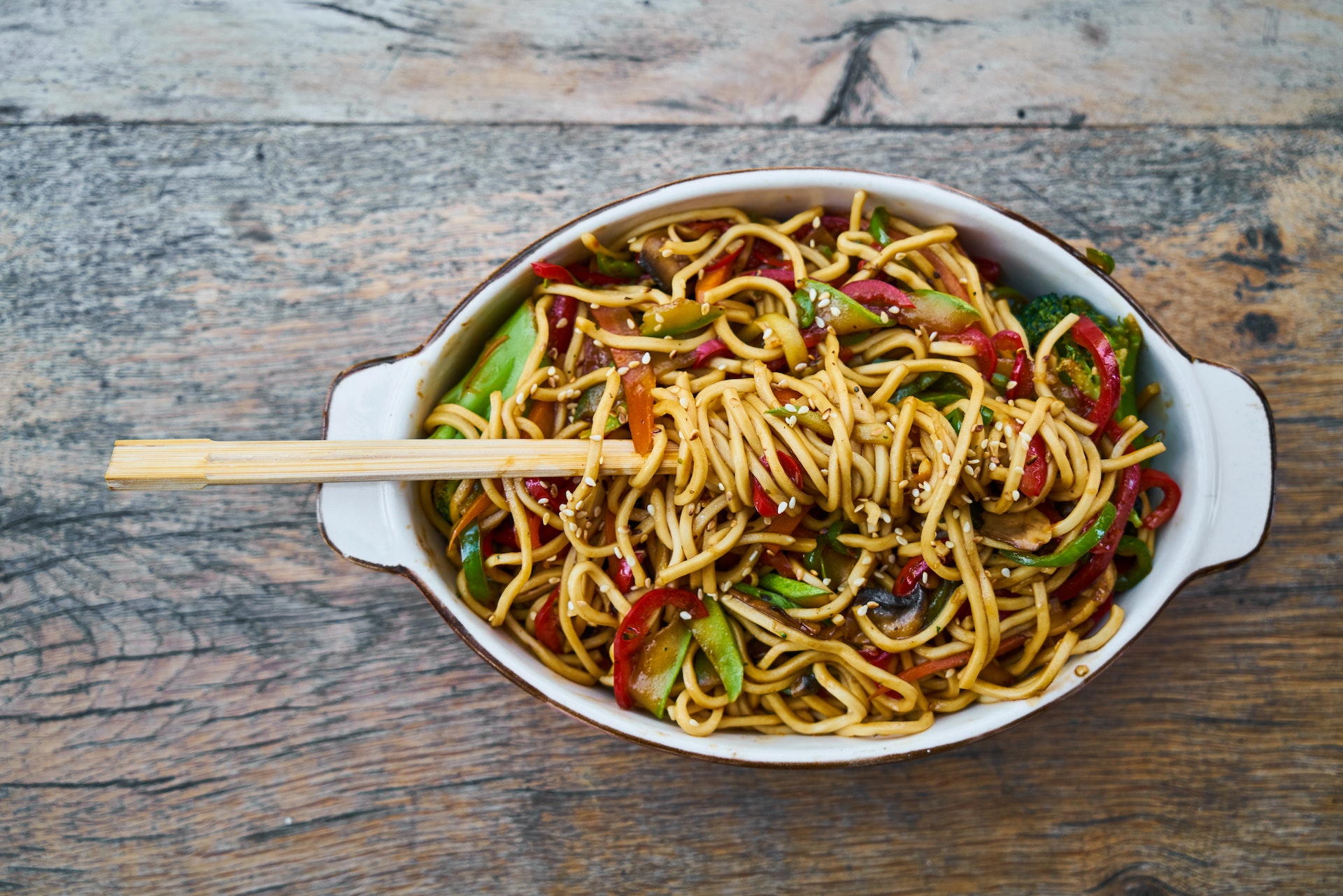Are you a vegetarian looking to maintain a healthy diet? Or someone considering a vegetarian diet, for ethical reasons, or perhaps to lose weight? Navigating the world of vegetarianism can be overwhelming, especially when it comes to ensuring you are getting all the necessary nutrients. But fear not! With the right knowledge and guidance, you can easily adopt a healthy vegetarian lifestyle and reap the numerous benefits it offers.
Being a vegetarian means excluding meat, poultry, and fish from your diet, and instead focusing on plant-based foods. While this dietary choice has been proven to have many health benefits, such as reducing the risk of heart disease and certain cancers, it is important to make informed choices to ensure you are meeting all your nutritional needs.
In this article, we will delve into the details of what constitutes a healthy diet for vegetarians and offer practical tips to help you achieve your health goals while staying true to your vegetarian lifestyle.
Benefits of a Healthy Diet For Vegetarians
A vegetarian or vegan diet can offer numerous health benefits. One of the most notable advantages is weight loss. Plant-based diets tend to be lower in calories and saturated fats, which can help individuals achieve and maintain a healthy weight.
In trials that included a total of 1,151 subjects, results showed that individuals on vegetarian diets lost more weight than those on non-vegetarian diets. Specifically, subjects on vegan diets had the greatest weight reduction, followed by lacto-ovo-vegetarian diets.
Additionally, adopting a vegetarian or vegan diet has been associated with improved cholesterol levels. By reducing or eliminating animal products from the diet, individuals can reduce their intake of dietary cholesterol and saturated fats, which can help decrease LDL cholesterol levels and lower the risk of heart disease.
A well-planned vegetarian or vegan diet can also reduce the risk of certain types of cancer. Plant-based diets rich in fruits, vegetables, and whole grains are packed with beneficial antioxidants and phytochemicals that have been shown to protect against various cancers, including colon, breast, and prostate cancer.
Furthermore, a vegetarian or vegan diet can aid in the management of diabetes. Plant-based diets are generally high in fibre, which can help regulate blood sugar levels and improve insulin sensitivity.
It’s important to note that these health benefits are not automatic and depend on following a well-planned vegetarian or vegan diet. It’s crucial to include a variety of fruits, vegetables, whole grains, and plant-based sources of protein in order to meet all of your nutritional needs. Limiting processed foods and ensuring adequate intake of essential nutrients, such as iron and vitamin B12, are also vital considerations.
If you are considering adopting a healthy diet for vegetarians, or a vegan diet, consulting with a healthcare provider or a registered dietitian can ensure that you are meeting all of your nutritional requirements.

What Are the Risks of an Unbalanced Vegetarian or Vegan Diet?
Following an unbalanced vegetarian or vegan diet can pose certain risks due to potential deficiencies in essential nutrients. It is important to plan meals that are nutritionally balanced and include a variety of plant-based foods in order to support optimal health.
One of the key nutrients that may be lacking in a vegetarian or vegan diet is protein. Animal products are typically rich sources of protein, and without careful planning, individuals may not consume enough plant-based protein sources to meet their daily requirements.
Similarly, vitamin B12 is primarily found in animal foods, and its deficiency can lead to nervous system damage.
Iron, zinc, and omega-3 fatty acids are other nutrients that can be lacking in an unbalanced vegetarian or vegan diet. Iron deficiency can result in fatigue and weakened immune function, while zinc plays a critical role in immune support and wound healing. Omega-3 fatty acids, typically found in fish and seafood, are important for brain health and heart function.
Furthermore, relying heavily on processed and quick carbohydrates, such as refined grains and sugars, can negatively impact overall health. This approach can lead to weight gain, increased risk of chronic diseases, and blood sugar imbalances.
To avoid these risks, it is crucial to plan meals wisely by incorporating a wide variety of plant-based foods and, when necessary, fortifying the diet with appropriate supplements.
Reference Intakes (RI)
In order to plan a healthy diet for vegetarians, it is important to understand the concept of Reference Intakes (RI). RIs, also known as Daily Values or Daily Reference Values, represent the recommended amount of specific nutrients that an average adult should consume in a day. These values serve as benchmarks to guide individuals in planning their meals and ensuring they meet their nutritional needs.
For men, the RIs for energy, protein, carbohydrates, sugar, fat, saturates, and salt are as follows:
- Energy: 2500 calories
- Protein: 55 grams
- Carbohydrates: 300 grams
- Sugar: 120 grams
- Fat: 95 grams
- Saturates: 30 grams
- Salt: 6 grams
For women, the RIs are slightly lower:
- Energy: 2000 calories
- Protein: 50 grams
- Carbohydrates: 260 grams
- Sugar: 90 grams
- Fat: 70 grams
- Saturates: 20 grams
- Salt: 6 grams
Additionally, when following a healthy diet for vegetarians, it is important to pay attention to specific nutrients such as iron, zinc, omega-3 fatty acids, B12, and iodine. The RIs for these nutrients vary depending on individual needs and specific dietary choices.
Planning a Healthy Diet For Vegetarians
With proper planning, a vegetarian diet can provide all the essential nutrients your body needs for optimal health. It is important to pay attention to specific nutrients such as iron, zinc, omega-3 fatty acids, B12, and iodine, as these are commonly found in animal products.
Let’s take a look at each of these nutrients and how to incorporate them into a healthy diet for vegetarians!
Vitamin B-12
Vitamin B-12 is an essential nutrient for individuals following a healthy diet for vegetarians. It plays a crucial role in red blood cell production, maintaining healthy nerves, and supporting brain function. Deficiency of vitamin B-12 can lead to anaemia, nerve damage, and cognitive impairments.
While vitamin B-12 is primarily found in animal products, such as meat, fish, eggs, and dairy, vegetarians can still obtain this important vitamin through other sources. Lacto-ovo vegetarians can rely on dairy products and eggs as a source of vitamin B-12. However, for those following a vegan diet, obtaining an adequate amount of B-12 can be more challenging.
In order to meet their B-12 needs, vegans may need to consider supplements specifically formulated for vegetarians or vegans. Additionally, there are vitamin-enriched cereals and fortified soy products available in the market that can provide a good source of B-12.
It is important for vegetarians, especially vegans, to monitor their B-12 levels regularly and consult with a healthcare provider to ensure they are meeting their nutritional requirements. By being mindful of their B-12 intake and considering appropriate supplements or fortified foods, vegetarians can maintain optimal health and prevent the risks associated with deficiency.

Protein
Protein plays a crucial role in creating a healthy diet for vegetarians, as it is responsible for tissue building and repair. Many people worry that vegetarians may not be able to consume enough protein, but with a well-planned diet, this concern can be easily addressed.
There are numerous vegetarian sources of protein that can easily be incorporated into a balanced diet. Legumes such as lentils, chickpeas, and beans are not only rich in protein, but they are also packed with fibre and other essential nutrients. Nuts and seeds, such as almonds, chia seeds, and hemp seeds, are another great source of protein for vegetarians. They can be added to meals, snacks, or even used as a topping for salads and smoothies.
Soy products like tofu, tempeh, and edamame are also excellent sources of protein for vegetarians. These versatile foods provide a good amount of protein along with other essential nutrients. Whole grains like quinoa, brown rice, and whole wheat bread should also be included in a vegetarian diet as they contain a fair amount of protein.
It is important to note that while individual plant-based foods may not provide all the essential amino acids required by the body, consuming a variety of these protein-rich foods throughout the day should provide the complete complement of protein that the body needs. By ensuring a diverse intake of legumes, nuts and seeds, soy products, and whole grains, vegetarians can easily meet their protein requirements and maintain a well-rounded diet.
Omega-3 Fatty Acids
Omega-3 fatty acids play a crucial role in maintaining overall health, and while they are commonly found in fish, vegetarians can still obtain them from various plant-based sources. Incorporating omega-3 fatty acids into a vegetarian diet is essential for supporting optimal health and well-being.
Canola oil and soy oil are excellent sources of omega-3 fatty acids that can be easily incorporated into everyday cooking. By using these oils in cooking and salad dressings, vegetarians can ensure they are getting the necessary intake of this essential nutrient.
Moreover, soybeans, tofu, walnuts, flaxseed, and seaweed are also notable sources of omega-3 fatty acids for vegetarians.
The health benefits associated with omega-3 fatty acids are significant. Research suggests that they can lower the risk of heart disease by reducing inflammation and improving blood vessel function. Omega-3 fatty acids also contribute to supporting foetal development during pregnancy, making them especially important for expectant vegetarian mothers.
Iron and Zinc
Iron and zinc are two essential nutrients that are important for maintaining a healthy diet for vegetarians. While these nutrients are commonly associated with animal products, vegetarians can obtain them from various plant-based sources.
However, it is worth noting that absorbing iron and zinc from plant sources can be more challenging compared to animal sources. This is because plant-based sources usually contain non-heme iron and zinc, which are not as easily absorbed by the body as heme iron and zinc found in animal products. Nevertheless, with proper planning and attention to diet, vegetarians can ensure they meet their iron and zinc requirements.
There are several iron-rich plant foods that vegetarians can incorporate into their meals. Dried beans and peas, lentils, whole-grain products like quinoa and brown rice, and dark leafy green vegetables such as spinach and kale are excellent sources of iron. Including these foods in a healthy diet for vegetarians can help maintain adequate iron levels.
Similarly, vegetarians can obtain zinc from several plant-based sources. Nuts like almonds and cashews, tofu, legumes such as chickpeas and lentils, and whole-grain foods like whole wheat bread and oats are rich in zinc.
To optimise the absorption of iron and zinc, it is recommended to consume these plant-based sources of nutrients with foods rich in vitamin C, such as citrus fruits, strawberries, and bell peppers. Vitamin C helps enhance the absorption of non-heme iron and zinc.
Iodine
Iodine is an essential nutrient that plays a crucial role in maintaining a healthy diet for vegetarians. It is necessary for the production of thyroid hormones, which regulate various metabolic processes in the body. This nutrient is particularly important for growth, energy use, and brain development, making it vital for individuals of all ages, including vegetarians.
While iodine is common in animal products, there are several vegetarian food sources that are rich in this nutrient. Some of these include bread, dairy products, eggs, seaweed, and certain plant-based milk drinks. Including these foods in a vegetarian diet can help ensure adequate intake of iodine.
It is important for vegetarians to pay attention to their iodine levels, as a deficiency can have significant health implications. Low iodine levels can lead to thyroid dysfunction, affecting metabolism, growth, and cognitive function. Therefore, incorporating iodine-rich foods into a balanced vegetarian diet is crucial for overall health and well-being.

Sample Meal Plan
Here is a 1-week sample meal plan for a lacto-ovo-vegetarian diet that incorporates essential nutrients and meets recommended amounts of fibre. Please note that this plan was designed to support weight loss goals and the calorie values are approximate and may vary depending on portion sizes and variations in nutritional values.
Monday:
- Breakfast: Scrambled eggs with spinach and tomatoes on whole grain toast (300 calories)
- Lunch: Chickpea salad with mixed greens, cucumbers, cherry tomatoes, and feta cheese (400 calories)
- Snack: Carrot sticks with hummus (150 calories)
- Dinner: Lentil curry with brown rice and steamed broccoli (450 calories)
Total: 1300 calories
Tuesday:
- Breakfast: Greek yogurt topped with mixed berries and granola (350 calories)
- Lunch: Quinoa and black bean stuffed bell peppers with a side salad (400 calories)
- Snack: Apple slices with almond butter (200 calories)
- Dinner: Veggie stir-fry with tofu, bell peppers, broccoli, and brown rice (450 calories)
Total: 1400 calories
Wednesday:
- Breakfast: Oatmeal with sliced bananas, walnuts, and a drizzle of honey (350 calories)
- Lunch: Caprese salad with fresh mozzarella, tomatoes, basil, and balsamic glaze (400 calories)
- Snack: Trail mix with dried fruits and nuts (200 calories)
- Dinner: Whole wheat pasta with marinara sauce, grilled vegetables, and Parmesan cheese (450 calories)
Total: 1400 calories
Thursday:
- Breakfast: Avocado toast on whole grain bread with a side of fruit (350 calories)
- Lunch: Spinach and feta stuffed mushrooms with a side of quinoa (400 calories)
- Snack: Greek yogurt with honey and almonds (200 calories)
- Dinner: Black bean and sweet potato tacos with salsa and guacamole (450 calories)
Total: 1400 calories
Friday:
- Breakfast: Banana and spinach smoothie with almond milk and a scoop of protein powder (350 calories)
- Lunch: Veggie wrap with hummus, avocado, bell peppers, and mixed greens (400 calories)
- Snack: Rice cakes with peanut butter and sliced banana (200 calories)
- Dinner: Vegetable curry with tofu and quinoa (450 calories)
Total: 1400 calories
Saturday:
- Breakfast: Pancakes made with whole wheat flour and topped with Greek yogurt and mixed berries (350 calories)
- Lunch: Mediterranean salad with couscous, chickpeas, olives, feta cheese, and a lemon dressing (400 calories)
- Snack: Veggie sticks with tzatziki dip (150 calories)
- Dinner: Mushroom and spinach risotto with a side of roasted asparagus (450 calories)
Total: 1350 calories
Sunday:
- Breakfast: Veggie omelet with mushrooms, onions, spinach, and a side of whole grain toast (300 calories)
- Lunch: Lentil soup with a side of whole grain crackers (400 calories)
- Snack: Homemade energy balls with dried fruits and nuts (200 calories)
- Dinner: Vegetable lasagna with a side salad (450 calories)
Total: 1350 calories
Remember, this is just a sample meal plan and individual nutritional needs may vary. It is always recommended to consult with a registered dietitian or healthcare provider to create a personalised meal plan that meets your specific dietary requirements.

Is a Healthy Diet For Vegetarians Right For You?
Adopting a healthy diet as a vegetarian can provide numerous benefits for both your overall health, as well as aiding in weight loss if that is your goal. By focusing on consuming a variety of nutrient-rich plant-based foods, vegetarians can ensure they are getting all the necessary vitamins, minerals, and protein their bodies need.
Additionally, this dietary choice can contribute to reducing greenhouse gas emissions, preserving water resources, and promoting animal welfare. Whether you are a vegetarian for ethical, environmental, or health reasons, following a balanced and healthy diet for vegetarians can support your well-being and contribute to a sustainable future.


